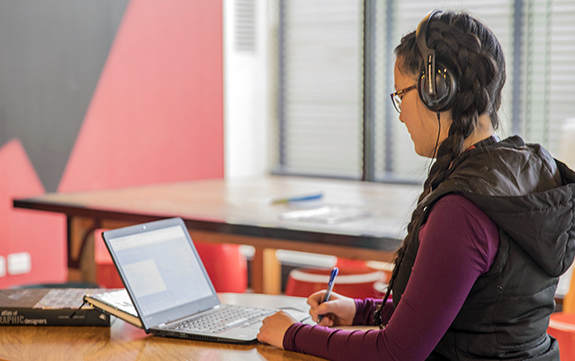Research highlights student and lecturer experiences with lecture recording

In Summary
- Study shows students use lecture recordings as a revision tool
- Lecturers remain cautious about their benefits
Lecturers remain sceptical about the benefits of lecture recording systems despite the overwhelming support of students, a Swinburne-based study has found.
The study evaluated how both Swinburne students and lecturers engaged with the lecture-recording system in the context of teaching and learning.
While a majority of students found that lecture recording enhanced their studies, a similar number of lecturers reported a preference to not have their lectures recorded.
Lecture recordings are now a common occurrence in universities. Serving a different purpose from scripted and targeted video resources, they capture full-length lectures and store them online, allowing students anywhere, anytime access on their own devices for learning.
“Just over 70 per cent of students surveyed said that access to lecture recordings benefited them in their learning, and nearly 70 per cent would like to see recordings available for all of their study units,” Learning Transformations Research Fellow, Dr Ekaterina Pechenkina says.
The study found that students most commonly used lecture recordings to:
- revisit and clarify complicated or confusing topics
- prepare for exams
- learn at their own pace
- improve their overall learning experience
- help them balance academic schedules and maintain study-life balance
“Importantly, students felt that having access to lecture-recordings eliminated a great deal of stress from their busy lives,” Dr Pechenkina says.
“Eighteen per cent even credited lecture-recording with helping them stay in a class – saying that otherwise they would have dropped out.”
Students from a non-English speaking background in the sample also attributed their improved academic experiences to lecture-recordings, stating that watching recordings helped them improve their comprehension of lecture content.
At the same time, some students found lecture-recordings valuable in helping them better understand lecturers with strong accents.
“On a note of caution, 35 per cent of students said they used lecture-recordings as a substitute for attending class, a finding that resonated with lecturers’ ongoing concerns about a possible correlation between low attendance and the existence of lecture-recordings,” Dr Pechenkina says.
Only 28 per cent of lecturers in the sample were in favour of lecture-recording, the rest expressing a preference not to have their lectures recorded.
While future research into lecture-recordings in higher education can help better explore the role lecture-recording plays in student success, lecture-recording remains a valuable service to students in light of increasing diversity of student cohorts and the growing numbers of students who need to juggle studies with full-time employment and family life.
The study is available online.

